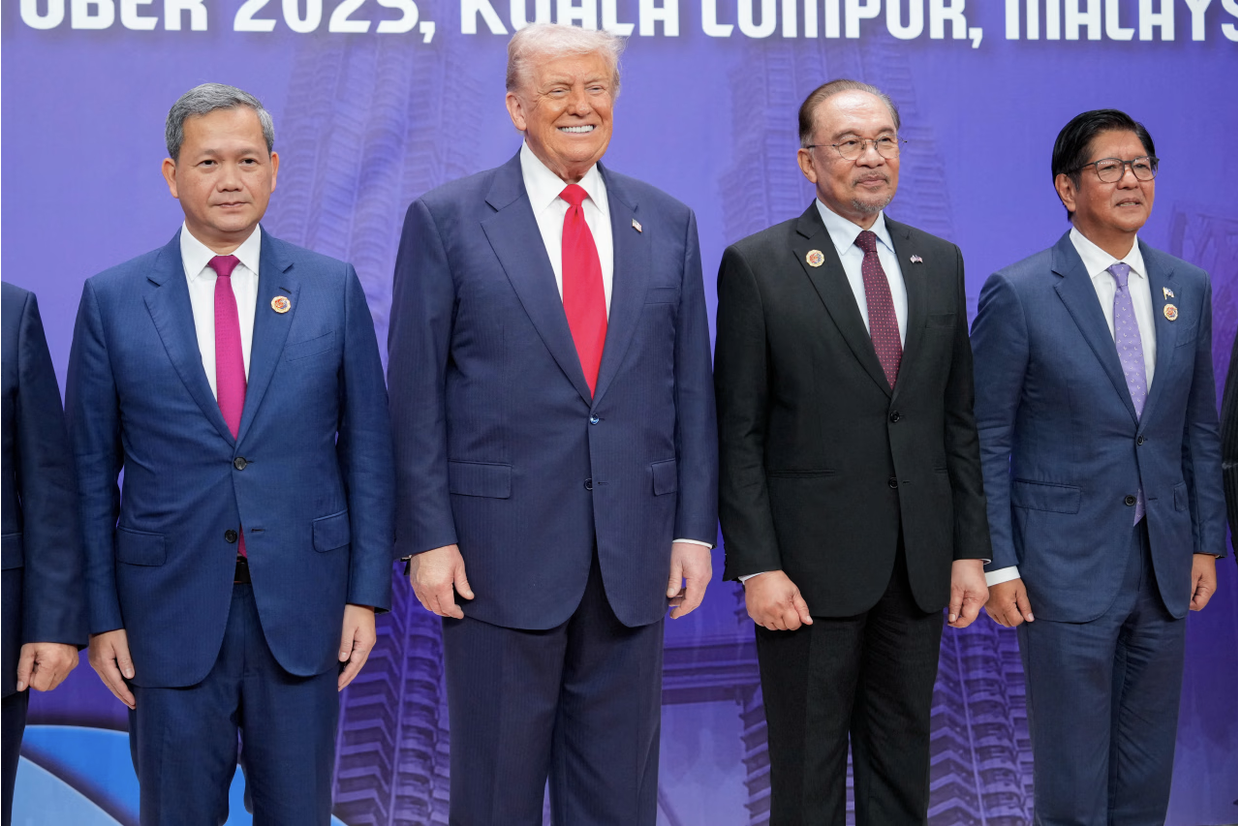By: Walter Russell Mead – wsj.com – October 27, 2025
After meeting leaders in Japan and South Korea, the president has a summit with Xi.
The steady buildup of Chinese military power in the South China Sea and around the Taiwan Strait allows Beijing to step up military pressure on American allies. Chinese cyberespionage and hacking capabilities allow it to steal commercial and security secrets from the U.S. and lesser powers.
Meanwhile, China’s long march to dominate the production and refining of rare-earth minerals has given Mr. Xi an important card to play in the U.S. trade war. Rare earths aren’t Mr. Xi’s only trump card. China’s manufacturing dominance in everything from green technology to pharmaceuticals creates important dependencies across the West. Fears of losing access to China’s consumer market drive many important Western companies to lobby their governments on China’s behalf.
But Mr. Trump also has some high cards, and, as always, it would be a mistake to underestimate both the strength of his position and his capacity for bold moves that increase his leverage in unexpected ways.
The president has done more to counter China’s ambitions than many of his supporters and almost all of his critics understand. Hard-core MAGA Trump supporters often hold a quasi-isolationist worldview that misses the significance of regional competition in Europe, the Middle East and Latin America in the great game of U.S.-China relations. These observers see the Trump administration’s Middle East and Venezuela policies as distractions from the business of making America great again. But the destruction of Iran’s bid for Middle Eastern hegemony boosts Mr. Trump’s position vis-à-vis China. A definitive defeat of China and Russia’s principal ally in the Western Hemisphere would similarly reverberate around the world.
Both in the Middle East and in the Americas, Trump-era foreign policy aims to strengthen American dominance over fossil-fuel markets. One can debate the means, but the objective is sound. America’s ability to control Russia’s oil income and to deter China by blocking Chinese maritime energy imports in a crisis is an ace the president brings to his meeting with Mr. Xi, and it is one whose value China’s leader fully understands.
Mr. Trump’s many establishment critics—wringing their hands over his unorthodox trade politics and his cavalier disregard for the liberal pieties and diplomatic niceties of alliance politics—can see no method in his madness. But when the Chinese and American leaders meet, Mr. Trump will have some solid accomplishments to bolster his position. Both Europe and Japan have turned a corner on defense spending, an accomplishment that has eluded every previous American president since the end of the Cold War.
And out of the chaos of Mr. Trump’s trade policies, last summer’s agreements with Japan and South Korea and recent agreements with Southeast Asian partners seem to be entrenching an approach that, whatever its shortcomings, is acceptable to key American trading partners. That approach also serves as at least a partial answer to decades of systemic Chinese abuse of the now-comatose World Trade Organization. A trade regime that imposes higher tariffs on China than on its neighbors and competitors makes it harder for China to cheat.
Neither Messrs. Xi nor Trump can rationally expect a triumph at the summit. Mr. Xi is no Mikhail Gorbachev negotiating his empire’s collapse. And Mr. Trump is no Neville Chamberlain, desperate for face-saving compromise as his empire declines. Each man believes, with some reason, that the nation and system he represents will ultimately emerge victorious from the current competition.
But neither seeks war with the other, and both seek to pursue their competition in conditions that let their societies flourish. Signs that emerged over the weekend of a likely compromise bear this out. Nothing involving Mr. Trump is ever safely predictable, but on balance he appears likely to return from his Pacific odyssey having secured a reasonable short-term compromise with China while advancing his plans for reshaping America’s role in the world.
To see this article in its entirety and to subscribe to others like it, please choose to read more.
 Listen Online
Listen Online Watch Online
Watch Online Find a Station in Your Area
Find a Station in Your Area










 Listen Now
Listen Now Watch Online
Watch Online
